water@leeds: Ecology
Our aim is to become a centre of excellence for aquatic ecosystem research through collaborative research (internally and externally) building on our existing excellence. We are developing a set of microcosm and mesocosm experimental facilities for aquatic ecosystem research including replicated ponds and recirculating stream channels at the University of Leeds farm. We are also training the next generation of graduate and postgraduate students, and actively work to ensure our science leads to real world impact.
Main Research Areas
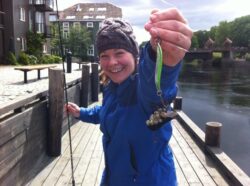 Climate change and species distributions
Climate change and species distributions
By combining historical records, contemporary surveys and model predictions, it is possible to describe and predict the potential impact of climate change on a wide range of animals and plants. Research in Chris Hassall’s lab focuses on attempting to explain interspecific variation in responses to climate change using comparative and biomechanical approaches, with a focus on dragonflies and damselflies (Odonata) as a model system.
Lee Brown’s group work on a range of climate change impacts studies most notably the effects of extreme floods and droughts on river biodiversity and ecological functioning.
 Urban freshwater ecosystems
Urban freshwater ecosystems
The ecology of urban freshwaters (and ponds in particular) has been neglected by ecologists until very recently. The competing priorities for urban water management, which stem from the many ecosystem services that such habitats provide, make it essential to understand the multiple processes that influence the function of ponds, lakes, and rivers in urban areas.
Current projects involve a large-scale evaluation of patterns in urban pond ecology and biodiversity, and the use of macroinvertebrates (Odonata) to study the impacts of urbanisation on habitat- and landscape-level ecological processes.
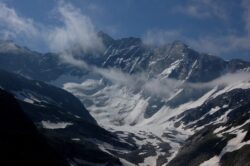 River ecosystem responses to glacier retreat
River ecosystem responses to glacier retreat
Work led by Lee Brown has been examining the effects of glacier retreat on the biodiversity of rivers in locations as diverse as the European Alps, Alaska, New Zealand, Svalbard and French Pyrenees. Notably, this has produced two papers in Nature Climate Change in recent years (Paper 1 and Paper 2).
More recent work has started to consider the structure of food webs in glacier fed rivers and how river ecosystem functioning relates to glacial influence.
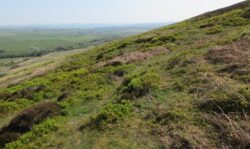 Upland management effects on aquatic ecosystems
Upland management effects on aquatic ecosystems
We have been working throughout the English Pennines examining the impacts of peatland management regimes, such as artificial drainage, drain-blocking and prescribed vegetation burning (More information in our EMBER project), on the biodiversity and functioning of river ecosystems.
Other studies have focused on the assembly of invertebrate communities in the thousands of new ponds that have been created throughout the UK uplands during the process of blocking artificial drainage channels.
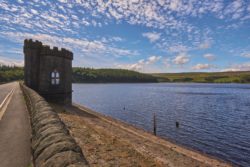 Environmental flows
Environmental flows
Research by Lee Brown, Megan Klaar and Paul Kay examines the effects of river flow management via reservoir operations and abstractions on downstream ecosystems. Our work with Yorkshire Water focuses on Pennine reservoir outflow manipulation (example 1 , example 2 ).
Water@leeds co-ordinates a Horizon 2020 Marie Curie Integrated Training Network on environmental flows management across Europe (Learn more about EUROFLOW project).
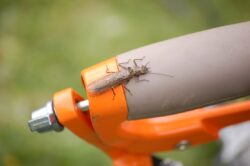 Slowing the Spread of Invasive Non Native Species (INNS)
Slowing the Spread of Invasive Non Native Species (INNS)
INNS are a leading cause of biodiversity loss, with an economic cost to the UK of £1.7bn pa. Freshwaters ecosystems are particularly vulnerable to the spread of INNS through trade, transport, recreation and environmental management. Biosecurity is a critical first line of defence to prevent their introduction and spread. Alison Dunn’s lab is researching effective, practical biosecurity practices for a range of activities.
In collaboration with Claire Quinn (SRI) and stakeholder organisations, we are developing the awareness and uptake of biosecurity across diverse stakeholders. A recent water@leeds study of Dikerogammarus villosus (aka killer shrimp) impacts on detritus processing was published in Oecologia
